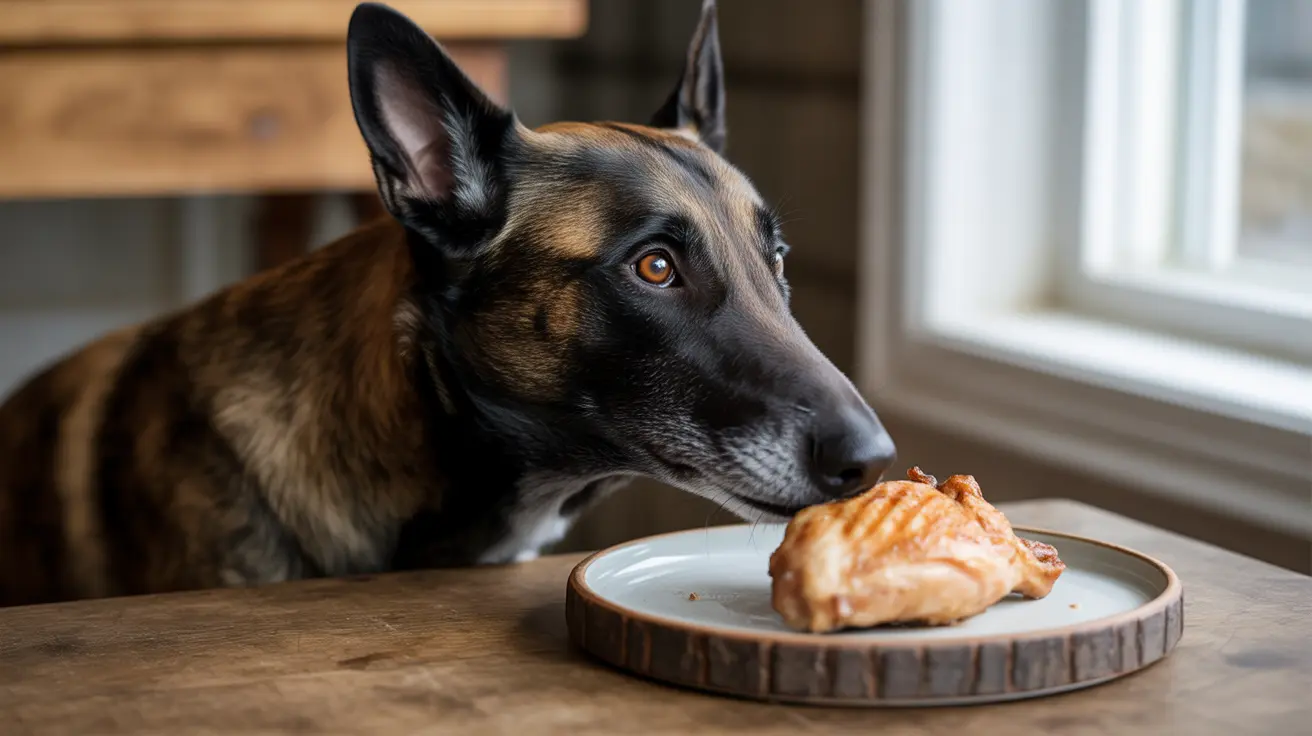Many pet owners wonder about sharing their grilled chicken with their furry friends. The good news is that grilled chicken can be a healthy and nutritious addition to your dog's diet when prepared correctly. However, there are important guidelines to follow to ensure your pet's safety and wellbeing.
In this comprehensive guide, we'll explore everything you need to know about feeding grilled chicken to your dog, including proper preparation methods, nutritional benefits, potential risks, and recommended serving sizes.
The Nutritional Benefits of Grilled Chicken for Dogs
Grilled chicken offers several important nutritional advantages for dogs when served as part of a balanced diet:
- High-quality lean protein that supports muscle development and maintenance
- Essential amino acids for healthy skin and coat
- B vitamins that boost metabolism and energy levels
- Important minerals like phosphorus and selenium for bone health
- Low-fat content, making it suitable for weight management
Safe Preparation Guidelines
The way you prepare grilled chicken for your dog is crucial for their safety:
- Remove all bones before serving - cooked chicken bones can splinter and cause serious injury
- Skip all seasonings, including salt, pepper, and marinades
- Remove the skin to reduce fat content
- Ensure the chicken is thoroughly cooked to prevent bacterial contamination
- Cut the meat into appropriate-sized pieces for your dog's size
Serving Sizes and Frequency
The amount of grilled chicken you can feed your dog depends on several factors:
- Small dogs (under 20 lbs): 1-2 tablespoons per serving
- Medium dogs (20-50 lbs): 2-3 tablespoons per serving
- Large dogs (over 50 lbs): 1/4 to 1/2 cup per serving
Remember that grilled chicken should only make up 10% of your dog's daily caloric intake, with their regular dog food providing the remaining 90%.
Potential Risks and Warnings
While grilled chicken is generally safe for dogs, there are some important considerations:
- Some dogs may have chicken allergies
- Excess protein can cause issues for dogs with kidney problems
- Improperly prepared chicken can lead to food-borne illness
- Regular table scraps can lead to obesity and nutritional imbalances
Signs Your Dog May Not Tolerate Grilled Chicken
Watch for these symptoms after feeding your dog grilled chicken:
- Vomiting or diarrhea
- Itching or skin problems
- Excessive paw licking
- Ear infections
- Gastrointestinal upset
Frequently Asked Questions
Can dogs eat grilled chicken, and how should it be prepared for them?
Yes, dogs can eat grilled chicken when it's prepared plain without seasonings, marinades, or bones. The chicken should be thoroughly cooked and cut into appropriate-sized pieces for your dog's size.
What are the health benefits of feeding dogs grilled chicken as part of their diet?
Grilled chicken provides high-quality protein, essential amino acids, B vitamins, and minerals that support muscle health, energy levels, and overall wellness in dogs.
How often and in what quantity can I safely feed my dog grilled chicken?
Grilled chicken should make up no more than 10% of your dog's daily caloric intake. Serving sizes vary by dog size, ranging from 1-2 tablespoons for small dogs to 1/4-1/2 cup for large dogs.
What are the potential risks or allergies associated with feeding grilled chicken to dogs?
Some dogs may have chicken allergies, and improperly prepared chicken can cause foodborne illness. Watch for signs of allergic reactions or digestive issues when introducing chicken to your dog's diet.
How can I ensure my dog gets a balanced diet if I regularly include grilled chicken in their meals?
Make sure grilled chicken is only a supplement to your dog's regular, balanced dog food. Maintain the 90/10 rule: 90% complete dog food and 10% treats or additions like grilled chicken.
Conclusion
Grilled chicken can be a healthy addition to your dog's diet when properly prepared and served in moderation. Always introduce new foods gradually and consult with your veterinarian about your specific dog's dietary needs.






